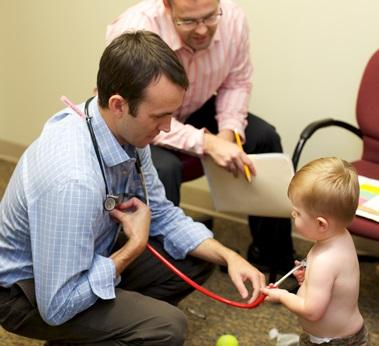Pediatrics

Overview
Pediatrics is primarily concerned with the physical, emotional, and social health of children from birth to young adulthood. Concerned with more than just the physical well-being, pediatricians are involved with the prevention, early detection, and management of behavioral, developmental, and functional social problems that affect their patients. Depending on the patient's age, the measurements associated with these parameters can be quite different. A pediatrician deals with biological, social, and environmental influences on the developing child as well as with the impact of disease or dysfunction on development. The pediatrician also interacts with parents or guardians to define the health status of patients and to educate and provide anticipatory guidance about the child's normal health and growth. Pediatricians can be active at the community level by helping to prevent or solve problems in child health care and be a public advocate for children's causes. Pediatricians work to reduce infant and child morbidity and mortality, control infectious disease, foster healthy lifestyles, and the day-to-day difficulties of children and adolescents with acute and/or chronic conditions.
Median Salary
- Early career
$ 171,485 - All physicians
$ 216,112
The Work
5 most frequently encountered conditions:
- Upper respiratory tract infection (other than otitis media)
- Allergies, asthma
- Behavioral issues
- Otitis media
- Gastrointestinal diseases
Setting
58% of physicians in this specialty practice in an urban setting at:
- Office Based Patient Care
- Hospital Based Physician Staff
- Administration
4% of physicians in this specialty practice in a rural setting at:
- Office Based Patient Care
- Hospital Based Physician Staff
- Administration
To read more about the specialty of Pediatrics visit AAMC Careers in Medicine


